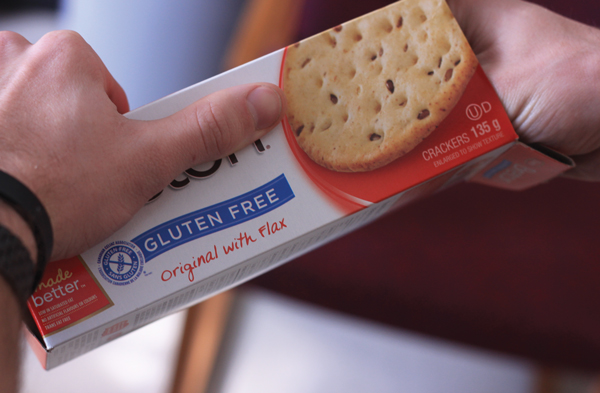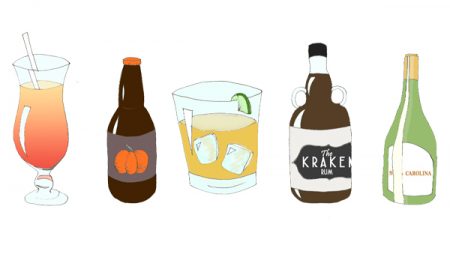Photo: Kim Wiens.
Myths about food, nutrition and health are widespread in society, and can be misleading or in some cases, even harmful. Over the years I’ve found some repeat offenders, so be sure to keep these in mind as you make your nutritional choices.
Artificial flavours
Companies often put “no artificial flavours” on their packages in an effort to present their product as being more natural, and, thus healthier. But funny enough, artificial flavours and natural flavours are literally identical.
Flavour is just the body’s way of interpreting certain molecules—For instance, glucose (a sugar) will taste sweet, and the organic compound isopentyl acetate tastes like bananas. To add flavour to a food, a chemist needs to isolate and add the molecule that gives the desired taste. To get a natural flavour, the chemist starts with a bunch of bananas (for instance), and processes them until only the flavour is left.
To get an artificial flavour, the chemist just makes it from scratch. In the end, it’s the same molecule.
Also, there’s also no reason to be afraid of ingredients with sciencey-sounding names. A lot of them are harmless and are the common components of of everyday food items. For instance, you’ve likely ingested the chemicals oxidane and ethanoic acid, probably under the names of “water” and “vinegar”.
Fad diets and gluten
Despite the popularity of complicated gluten-free and paleo diets, it’s fairly simple to cultivate a healthy diet. Eat lots of fruit and vegetables, don’t eat too many snacks, and get a good amount of exercise (at least 150 minutes a week).
Take, for instance, detoxing and cleanses. The human body doesn’t need coffee enemas or kale smoothies to get rid of “toxins”—it needs a liver as well as a urinary and a digestive system, all of which most people already have.
As for gluten, most people don’t need to worry about it. There is a small percentage of the population who have celiac disease, and they can’t have any gluten.
Unfortunately, self-proclaimed food gurus have blown this problem out of proportion by marketing gluten-free diets as the universal cure to all evils. Unfortunately companies tend to take advantage of this widespread fear to make a profit.
Organic foods
There isn’t much convincing evidence that organic foods are better for your health or for the environment. On the other hand, there is overwhelming evidence to suggest that genetically modified organisms (GMOs) are safe.
Yet, myths surrounding those designations are bountiful. For instance, organic farmers do use pesticides—just not pesticides that have been deemed unnatural.
A great example of the double standard is how organic farmers will take cans of Bt bacteria and spray them on their crops, whereas genetically engineered food allows the genes to be in the plant itself. In the end, you have the same result—the crops are safe—so why are only the people who grow GMOs crucified for using pesticides?
Furthermore, multi-billion dollar big organic companies are just as potent a force as companies that produce GMOs – Monsanto is not some cartoonishly evil corporation bent on world domination. In fact, Monsanto will pay farmers to help them clean up the contamination and their genetically modified crops are among the most tested in existence.
In the end, we can’t all be nutritionists, geneticists, chemists, etc… but we can at least think critically about these kinds of issues—demanding evidence about what we don’t know and seeking facts when there is only pseudoscience.
Our food isn’t haunted by demons, so let’s stop acting that way.





